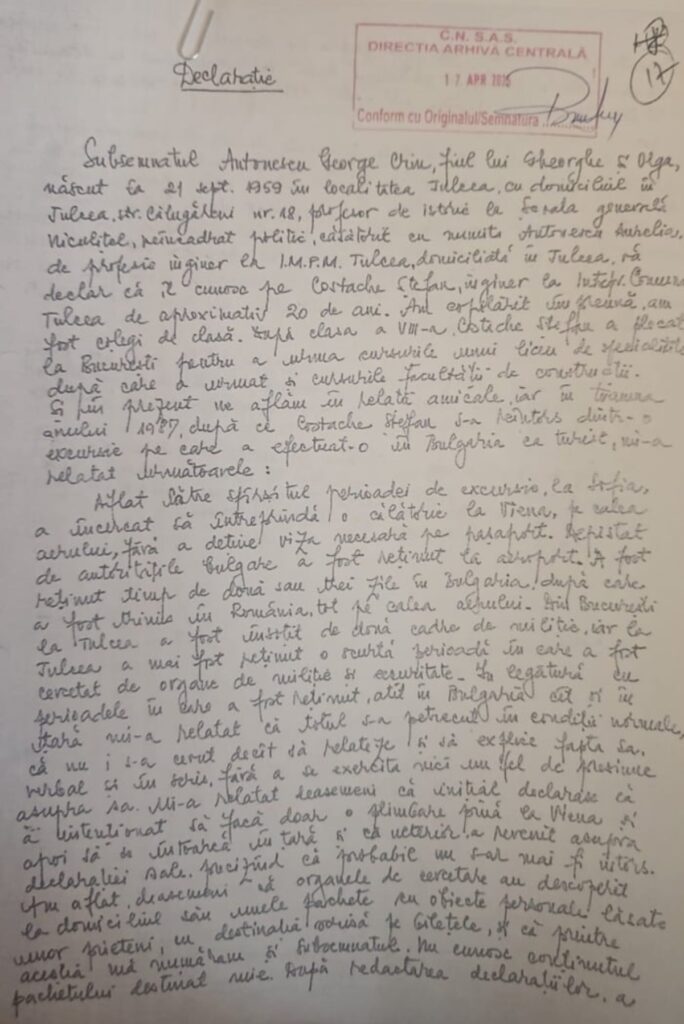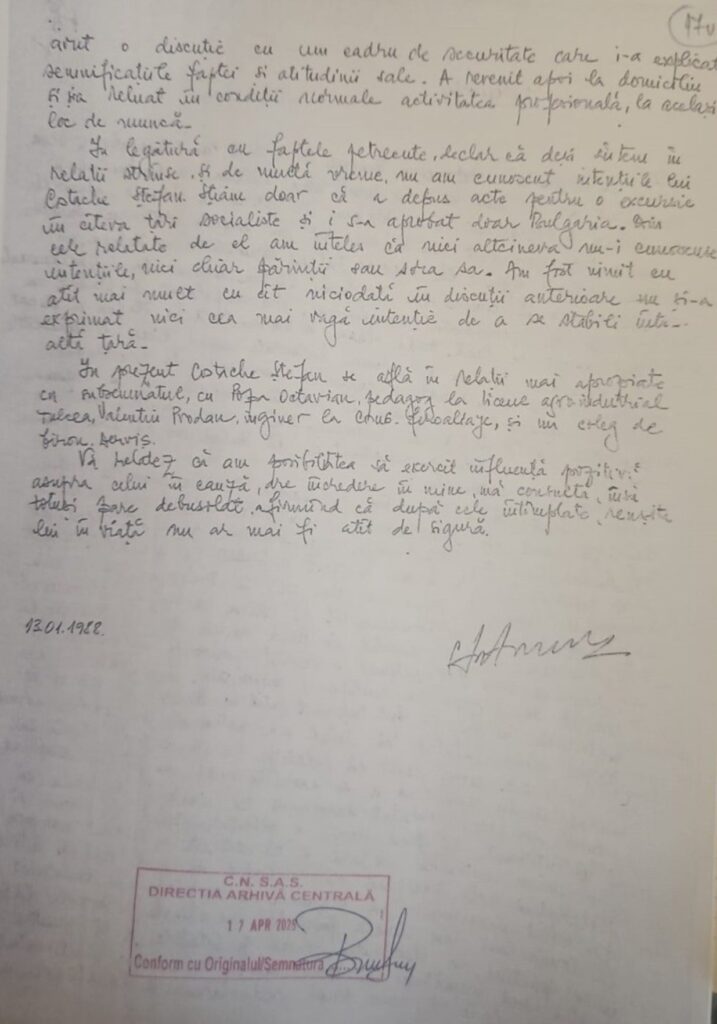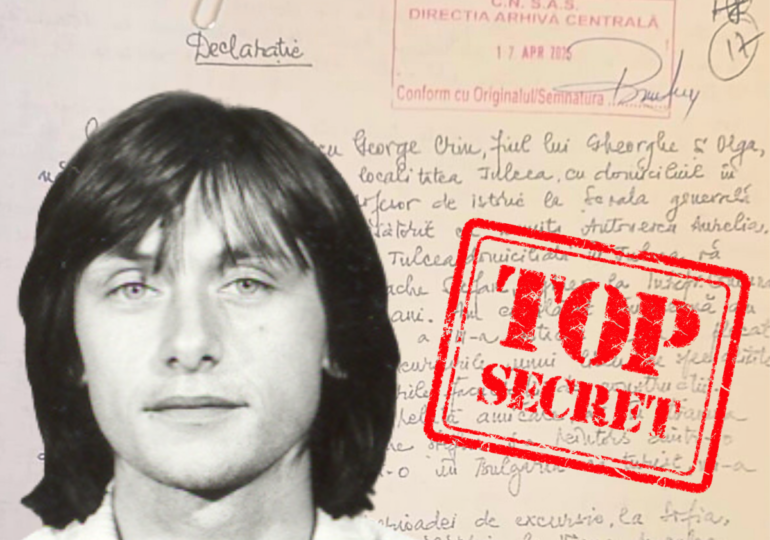Crin Antonescu’s entire career has been a series of appearances and disappearances as if an invisible hand has guided him through the dark and cold labyrinth of Romanian politics.
At the beginning of 1993, when I was a young reporter at the daily „Evenimentul Zilei,” I was accredited to the Civic Alliance Party, led by literary critic Nicolae Manolescu.
One of the editorial obligations was to attend the party’s press conferences, but also to be present at the headquarters during leadership meetings to write news and monitor the party’s activities.
That's how I met Crin Antonescu, who at the time was in his first term as a deputy, entering Parliament on the Civic Alliance Party's list, even though, paradoxically, in 1990, after the Revolution, he joined the National Liberal Party, according to his own statements.
I think I got two or three statements from him during that year. I remember he was seen by reporters as an atypical young politician, he had long hair, spoke pleasantly, and behaved politely towards others.
He didn't stand out much in terms of political ambitions compared to others who were thirsty for publicity. He respected the party line and the leadership's viewpoints.
I saw him as a functionary trying to be useful to his superiors without upsetting them.
It was a bit unusual for a young teacher from Tulcea, who did not stand out during or after the Revolution, did not participate in the long series of demonstrations in 1990, and did not have a profile of a vehement regime critic, to end up in Parliament on the Civic Alliance Party's list, a party of intellectual opposition.
But at that time, many unusual things were happening, so Crin Antonescu's rapid political rise was not considered extraordinary.
The Oil Tycoon
In the same year, Antonescu moved from the Civic Alliance Party to PL '93, a political faction separated from the liberal parliamentary group. Three years later, he became a member of the National Liberal Party following the reunification of the liberal movement, entering Parliament on the lists of the CDR alliance (Romanian Democratic Convention).
His first major appearance in Romanian politics took place in 1997, in the CDR-PD Government, when he was appointed Minister of Sports, a position he held until 2000. After that, he disappeared for 9 years. He remained a deputy, even the spokesperson for the National Liberal Party, but he once again assumed his quiet role as a faithful party soldier, without standing out, without positioning himself as a leader or showing a desire to assert himself, as most politicians who have become somewhat known tend to do.
At the beginning of 2009, a few months before his reappearance in the forefront of Romanian politics, I was working at the daily "Adevărul," where I held the position of deputy chief editor. The newspaper was owned by oil tycoon Dinu Patriciu.
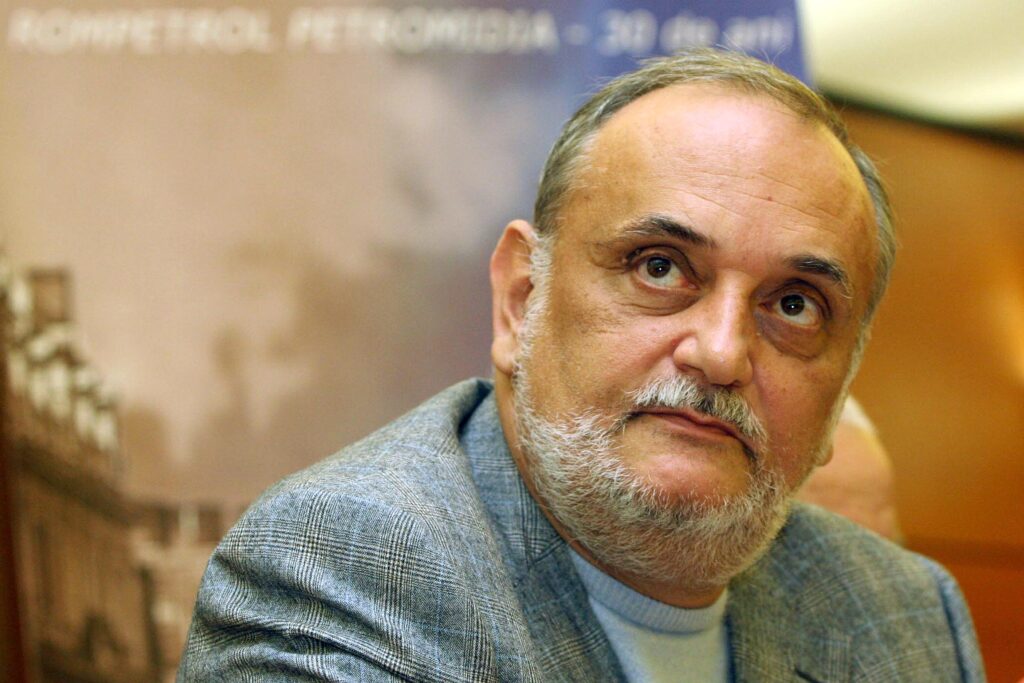
During a meeting he had with the editorial leadership one day, he whispered mysteriously that he had "a young man who will go far."
At that moment, I didn't understand what he meant and didn't pay much attention. At that time, Patriciu was in a life-and-death struggle with Traian Băsescu, the President of Romania, and a cartel of moguls had formed to defeat him in the upcoming presidential elections at the end of the year.
A few days later, I noticed Crin Antonescu's portrait on a large computer screen in the newspaper's layout department, and an art director was working on a campaign poster.
That's when I realized that Dinu Patriciu's wonder boy was Crin Antonescu, and I thought the tycoon would have a lot of work to do to turn him into the President of Romania, to defeat Băsescu.
Another Attempt to Overthrow the Constitutional Order
Under pressure from mogul Dinu Patriciu (1950-2014), Crin Antonescu becomes the leader of the National Liberal Party in March 2009 and will run for the presidency, but loses in the first round, with the final being between Băsescu and Geoană.
The editorial leadership of "Adevărul" enters into conflict with the owner, who wanted to turn the newspaper into a propaganda tool. Things go from bad to worse, but a compromise is reached, and political articles are no longer published in the newspaper. That summer, I left the editorial office.
However, Crin Antonescu remains in the spotlight, alongside Ponta, they were the heroes of an attempt to overthrow the constitutional order in 2012, which was narrowly averted thanks to the intervention of U.S. representatives and the European Commission.
Their antics led to the marginalization of Romania, the imposition of the CVM, and 12 years of waiting to join the Schengen Area. Political actions have consequences.
In 2014, Crin Antonescu steps down from the leadership of the National Liberal Party and announces his retirement from politics. But after a decade, he reappears, being brought back into the spotlight by the PSD and PNL as an emergency solution to save the alliance.
Why Marcel Ciolacu believed that a former PNL leader, absent from the political scene for a decade, would be his and the PSD's savior remains, for the moment, a mystery, but according to several political sources, the social-democratic president is the one who blocked the candidacy of Ilie Bolojan, the current interim president.
Everything Happened Under Normal Conditions
"Towards the end of his excursion in Sofia, he tried to take a trip to Vienna by air, without having the necessary visa in his passport," wrote Crin Antonescu on January 13, 1988, at the age of 29.
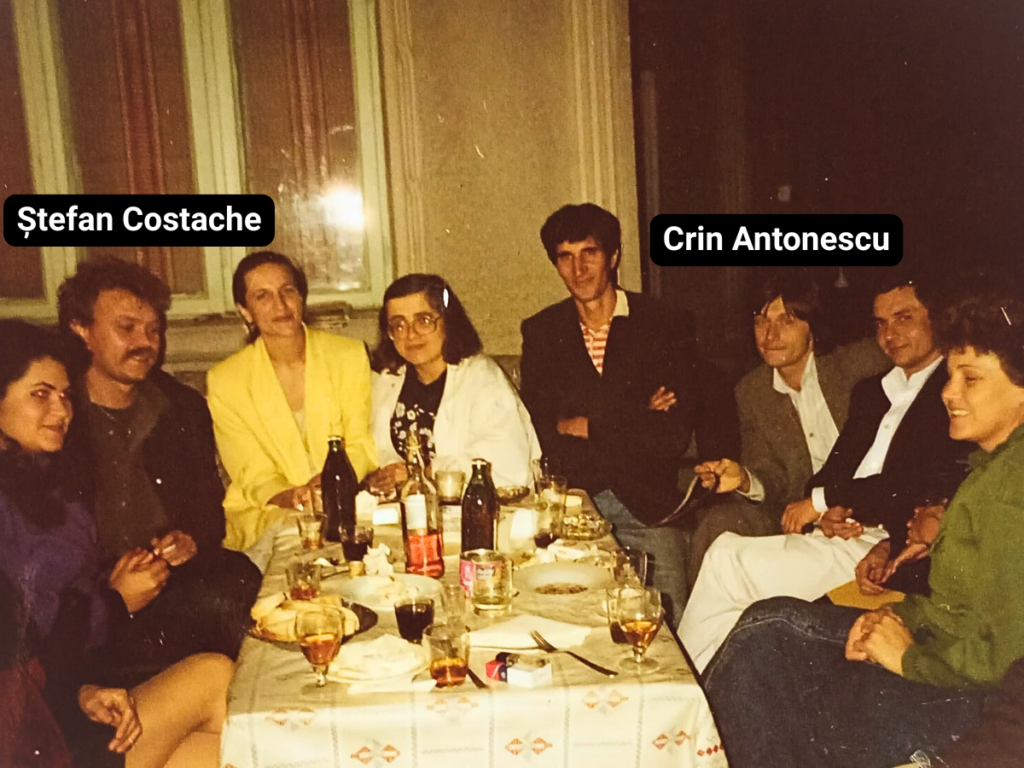
"Detected by Bulgarian authorities (note: referring to Ștefan Costache, a friend of Crin Antonescu), he was detained at the airport. He was detained for two or three days in Bulgaria, after which he was sent back to Romania, also by air. From Bucharest to Tulcea, he was accompanied by two militia officers, and in Tulcea, he was detained for a short period and investigated by the militia and security organs," Antonescu wrote in his statement.
"Regarding the periods when he was detained, both in Bulgaria and in the country, he told me that everything happened under normal conditions, that he was only asked to report and explain his actions, verbally and in writing, without any pressure being exerted on him…," Crin Antonescu recounted at that time.
A Mystery That Has Been 35 Years in the Making
The entire public debate, following the release of the statement, focused on the last paragraph: "I inform you that I have the possibility to exert positive influence on the person in question, he trusts me, consults me, however, he seems disoriented, stating that after what happened, his success in life is no longer so certain."
But taken together, the two paragraphs suggest as if the entire statement had been dictated to Crin Antonescu.
An extraordinary care is noticeable in the document to include information about the period when Ștefan Costache was detained in Bulgaria, how he was sent back to Romania, how many militiamen escorted him from Bucharest to Tulcea, details that are unnecessary in a private conversation between a young man trying to flee the country and his confessor.
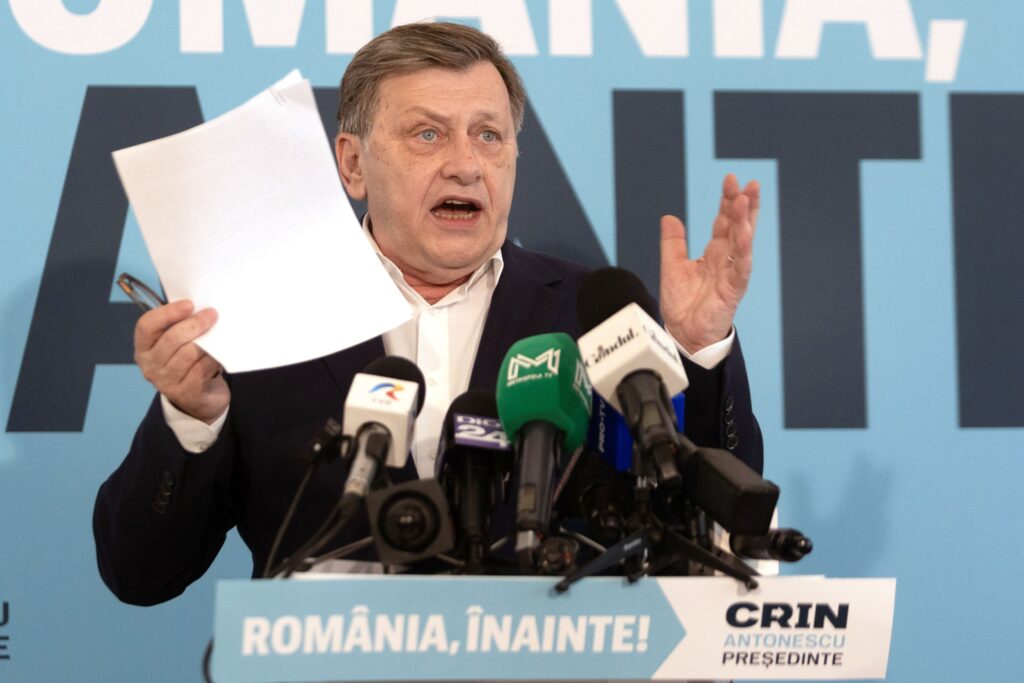
But the most shocking statement written by Crin Antonescu in his statement is the mention that his good friend was interrogated by the Militia and Securitate "without any pressure being exerted on him…"
Personally, neither during the communist period nor after 1989 have I heard, read, or spoken to anyone who was interrogated by the Securitate for a serious offense - fleeing the country at that time was equivalent to treason - without any pressure being exerted on them.
It remains a mystery how in 35 years of politics, an important document about a Securitate investigation involving a person who would later become a minister, interim president of Romania, and a candidate for the head of state remained hidden.
In the event that Crin Antonescu reaches the Cotroceni Palace, that dark episode from his past, the way it was hidden from public opinion for so many years, and the possibility that shadowy figures may have used the statement given to the Securitate to manipulate him will haunt Romania and destroy his internal and international credibility.
The holographic document, released from the CNSAS archives during the electoral campaign:
